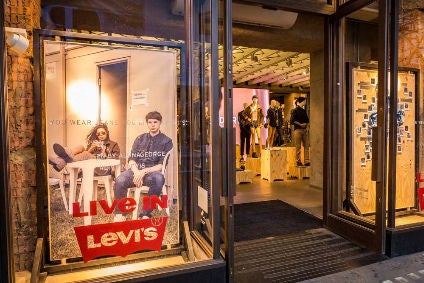
Levi Strauss & Co has inked an agreement with the International Finance Corporation (IFC), part of the World Bank Group, to finance initiatives to reduce emissions and water use at its textile supplier factories.
The move is part of goals by LS&Co to meet its corporate sustainability objectives to reduce greenhouse gas emissions and water use in its supply chain.

Discover B2B Marketing That Performs
Combine business intelligence and editorial excellence to reach engaged professionals across 36 leading media platforms.
As part of the new collaboration, IFC will work with 42 designated Levi Strauss suppliers and mills in ten countries to identify and implement actions to cut emissions, improve water efficiency and lead to the wider adoption of renewable energy supply options.
The work, which will take place in Pakistan, Bangladesh, Sri Lanka, India, Mexico, Lesotho, Colombia, Turkey, Egypt, and Vietnam, will incorporate IFC’s Partnership for Cleaner Textiles (PaCT) approach for reducing resource consumption and wastewater pollution.
The aim of PaCT is to drive the long-term competitiveness and environmental sustainability of the textile wet processing sector by addressing high water, energy, and chemical use through the adoption of best practices – ultimately leading to lower resource consumption, higher profits, and a better reputation for the sector.
IFC and Levi Strauss will jointly contribute to the costs of implementing the new agreement.

US Tariffs are shifting - will you react or anticipate?
Don’t let policy changes catch you off guard. Stay proactive with real-time data and expert analysis.
By GlobalDataThe partnership follows the launch of a pilot cooperation agreement by IFC and Levi Strauss in 2017, which helped six Levi Strauss suppliers in four countries – Bangladesh, India, Sri Lanka, and Vietnam – cut their carbon footprint by 19% and reduce energy and water consumption, leading to significant savings in operating costs.
IFC has also been working with the US jeans giant to provide financial incentives for garment suppliers in developing countries to upgrade environmental, health and safety and labour performance through its Global Trade Supplier Finance programme.
“We hope this programme can also benefit others in the apparel industry and help reduce our collective footprint,” adds Liz O’Neill, executive vice president, global product and supply chain, at Levi Strauss.
Click here to read just-style’s recent interview with Michael Kobori, vice president of social and environmental sustainability at Levi Strauss & Co. He explains how the company’s initiatives to tackle high water, energy, and chemical use in the textile wet processing sector brings savings for vendors, as well as help on financing larger investments.





